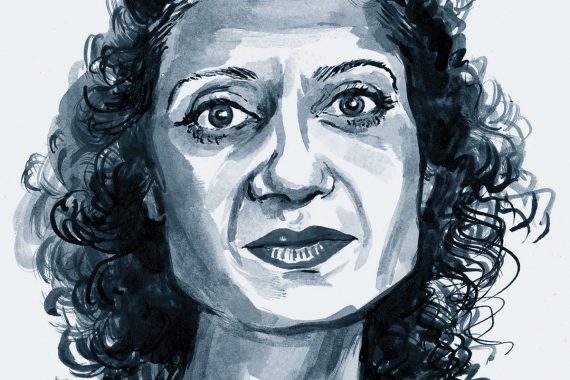Suffer little children

A few years back, I developed a resilience programme for GP trainees and one of the topics covered was DIY Cognitive Behavioural Therapy. Now, before anyone starts detonating about the R word, I can assure you, we also included topics on assertiveness and the risks of over-servicing the patient. The CBT topic was to recognise some of the cognitive distortions we all experience, such as having a global sense of failure, when one aspect of our life has not gone our way.
What I didn’t expect a few years later was to be pouring over textbooks on cognitive behavioural therapy in order to share some techniques with my own daughter.
Like thousands of other young people, my daughter has developed a significant anxiety disorder since the start of this pandemic. The previously simmering level of low mood attributed to hormones, is now rampaging as full-blown panic attacks which are triggered by anything from mask wearing to school attendance, and from shopping in the Mall to going to bed. Following a rejection from CAMHS and a six-month wait for some light touch counselling through a charity, it’s beyond frustrating to be unable to access what she needs. I’ve given up trying to access private child psychology for CBT because everyone within a 30-mile radius of my home is fully-booked.
So, I dredged up the memories I had from my psychiatry days of treating a patient with obsessive compulsive disorder with CBT, and I planned a programme of graded exposure for my daughter to return to school. Of course, the school is completely out of its depth and would approve anything I suggest, because they are completely overwhelmed with mental health issues. It all went pretty well until the second week of graded exposure, when my daughter had to enter isolation (again) due to a positive Covid case in her bubble. So, she remained off until the end of term and we’re now completely back to square one.
Along with palliative care, mental health support for children is not NHS-funded. It’s provided by a variety of charities and third sector organisations, which are often unable to provide the therapeutic treatments required. If a child is lucky enough to be accepted by CAMHS, it’s unsurprising that the wait times may be in excess of three months due to receiving less than 7% of the mental health budget.
As I watch my daughter shaking with fear and clutching at her duvet, my mind thinks back to the hundreds of adults I have consulted experiencing similar symptoms. These adults not only have the advantage of years of experience and knowledge over my daughter – they are also recipients of beta blockers, antidepressants, anxiolytics, and alcohol. The dialogue around the need to offer long-term sustainable solutions for their anxiety falls on deaf ears, yet our children, who are too young for mental emollients, are denied access to these solutions.
In many ways, being forced to manage emotions without chemicals is positive but this cannot be achieved without a huge injection of resource into mental health services. Without this, our suffering children will turn into suffering adults who will have access to a wide range of cerebral anaesthetics which will slowly kill them. And we will never know the true extent of non-Covid harm because it will be permeating through society’s pores without anyone really measuring it.
Dr Shaba Nabi is a GP trainer in Bristol. Read more Dr Nabi’s blogs online at pulsetoday.co.uk/nabi
Pulse October survey
Take our July 2025 survey to potentially win £1.000 worth of tokens

Related Articles
READERS' COMMENTS [2]
Please note, only GPs are permitted to add comments to articles










The sertaline epidemic is pouring out of the tap. And ears of some. 200mg I saw on one recently. Like really? Had a recent Eating Disorder referral rejected because she wasn’t vomiting enough for that box to be fulfilled. So one considers asking her to vomit 3 more times a day for the NHS to fulfil its over-promises. What is lacking is any spiritual dimension, awareness and conscious living of what is the mind, body and soul…regardless of upbringing, creed or culture. It is all unilateral and plasters.
Shaba, I wish your daughter and you well. It’s probably not much comfort to advise you that many of us are suffering through this Covid time.